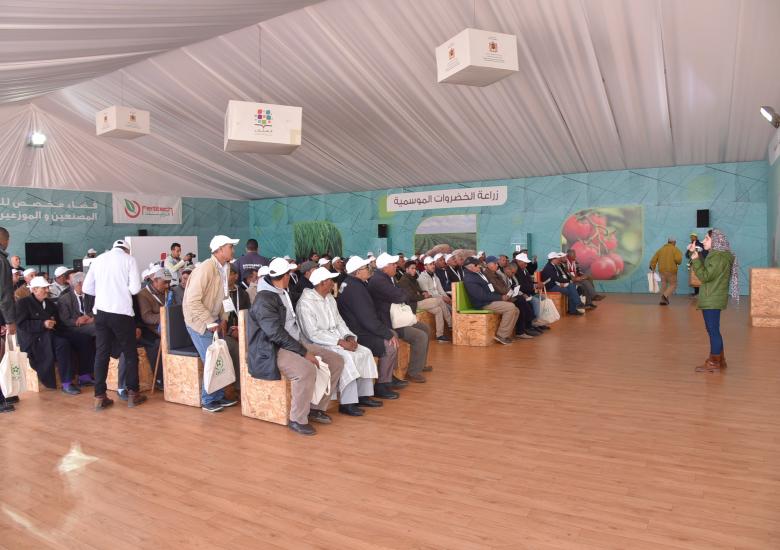Market gardening: the “Al Moutmir li khadamat al qorb” sets place in Sidi S

For the third step of the market gardening phase, OCP group has installed its itinerant project « Al Moutmir Li Khadamat Al Qorb » this Tuesday 2 February in Sidi Slimane, in the province of Dar Bel Amri.
After the first phase that was launched in September 2018 for the harvesting of cereal crops and vegetables, this second stage is part of the development program deployed by OCP agronomist-engineers and will allow the promotion of the best agricultural practices in order to have a more sustainable and prosperous agriculture.
Being an integral part of the “Al Moutmir” program that embodies OCP’s commitment to the development of agriculture in Morocco, the itinerant program “Al Moutmir Li Khadamat Al Qorb” targets around 30 communities in different provinces, including El Hajeb, Larache, Kenitra, Benslimane and Marrakech. Three main cultivations are targeted on this occasion: potato cultivations, tomatoes and onions. Being the first foreign-currency generator in agriculture, market gardening is an essential driver of the national economy for it generates a quarter of the sector’s employment, represents 23% of the global agricultural production and constitutes 60% of the country’s agricultural exportations.
We should also note that concerning the demonstration platforms program founded by OCP, among the 2,000 platforms included in this program, 300 are dedicated to market gardening and are meant to build, together with farmers, sample cases of the impact of a reasoned and scientific approach to increasing productivity and preserving resources.
The objective is to demonstrate the project’s impact on the lands and multiply its effect on nearby residents, by providing training and support through accessibility to the platforms for all actors of the ecosystem. Along with human resources, OCP also provides farmers with scientific methods and technologies such as popular scientific references adapted to each step of the technical itinerary, and itinerant laboratories in different regions to make soil analyses free of charge. This second phase will impact more than 1,750 farmers and will start more than 200 training sessions covering the complete cultivation cycle practiced by the farmer.

